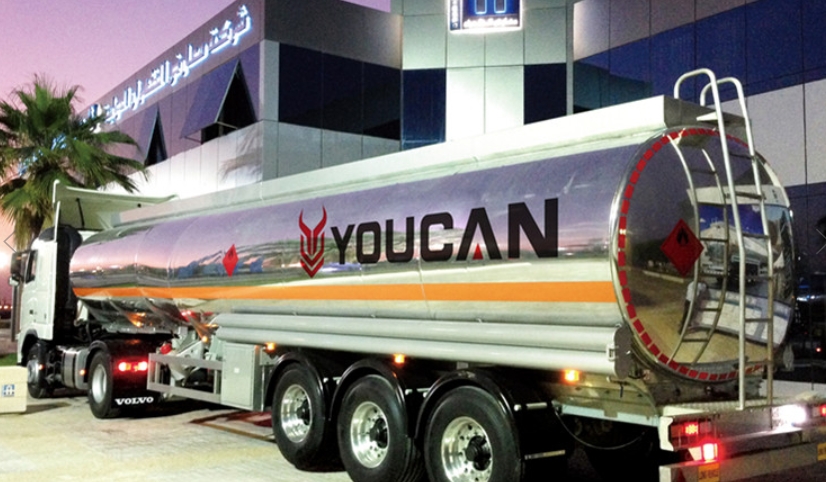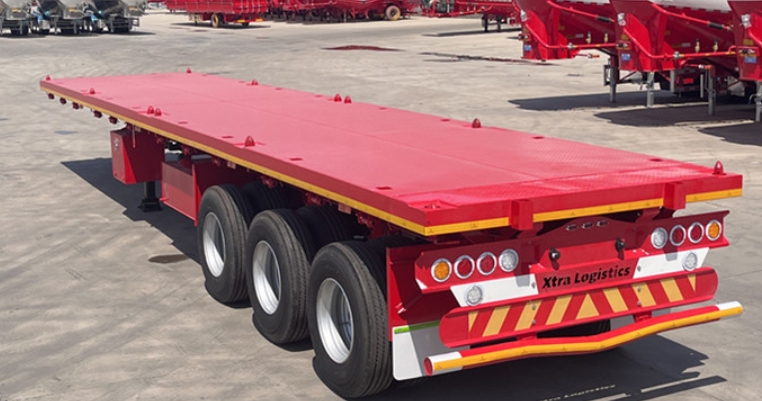Find the best Specialized Liquid Tanker
What are Specialized Liquid Tanker?
Specialized Liquid Tankers are a specific class of vessels designed for the transportation of bulk liquid cargo across the world's oceans. These tankers are equipped with advanced engineering systems and safety measures, enabling them to handle hazardous and delicate substances like chemicals, oils, and liquefied natural gas (LNG) efficiently and securely.
The specialized liquid tanker market has grown remarkably over the past few decades, driven by the rising global demand for industrial chemicals and energy resources. There are various types of specialized liquid tankers, including:
Chemical Tankers: These ships are custom-built to transport a variety of chemicals in bulk, such as vegetable oils, acids, and solvents. They are fitted with advanced coatings and specialized tank configurations to prevent cross-contamination and ensure cargo safety.
Oil Tankers: Designed for the transportation of crude oil and its derivatives, oil tankers are available in different sizes, from small coastal vessels to gigantic supertankers. Their design and size are optimized according to the route and cargo requirements, ensuring effectiveness and safety throughout the journey.
LNG Tankers: These vessels transport large volumes of liquefied natural gas, which is a crucial energy source for various countries. LNG tankers utilize cryogenic technology to store and transport the gas at extremely low temperatures, maintaining its liquid state and preventing any leakage.
Comprehensive safety procedures and stringent regulations govern the operating standards of specialized liquid tankers to minimize the risk of spillage, explosion, or other environmental hazards. Additionally, these ships are equipped with advanced navigation systems, instrumentation, and communication technology, which facilitate precise maneuvering and real-time monitoring. Developing efficient and environmentally responsible specialized liquid tankers will undoubtedly continue to be a top priority as global trade and demand for bulk liquid cargo expand.
What do Specialized Liquid Tankers do?
Specialized Liquid Tankers are an essential component of the modern maritime trade industry. As a critical part of the global transportation network, these vessels are specifically designed to transport a variety of liquid cargoes safely and efficiently. This article will explore the key functions and features of Specialized Liquid Tankers and their importance for competitive and sustainable transportation.
Firstly, Specialized Liquid Tankers are built to transport a wide range of liquid products. This includes hazardous and non-hazardous chemicals, petroleum products, liquid foodstuff like juices and edible oils, and raw materials that cannot be transported by containers or dry bulk vessels. The diverse nature of goods these tankers carry makes them invaluable for our interconnected world, as they help meet demand across different markets.
To ensure optimal safety and efficiency, Specialized Liquid Tankers are equipped with advanced technology and innovative design features. This may include specialized coatings or tank linings to prevent cargo contamination, segregated ballast tanks to safely store contaminated water, and double hulls to minimize the risk of environmental damage in case of accidents. By using purpose-built ships for liquid cargo, the maritime industry can mitigate risk and safeguard the interests of all parties involved.
Additionally, Specialized Liquid Tankers are commonly split into distinct categories, including chemical, oil, product, and liquefied gas tankers. This differentiation allows for the customization of design and onboard equipment to better cater to specific cargo needs, offering improved flexibility for shipping companies and cargo owners.
Lastly, Specialized Liquid Tankers play a crucial role in supporting the global economy. By transporting essential commodities, they facilitate international trade and contribute to energy security, allowing countries to access strategic reserves and meet domestic demand for a wide array of products.
In conclusion, Specialized Liquid Tankers are indispensable for the safe, efficient, and sustainable transportation of liquid cargo worldwide. Their unique design features and technologies enable them to accommodate diverse and often hazardous goods, while supporting global trade and economic growth. Without them, many essential sectors of our global economy would be severely impacted.
Why Are Specialized Liquid Tankers So Important?
Specialized liquid tankers play a pivotal role in the global maritime supply chain, as they facilitate the transportation of a wide range of liquids such as crude oil, refined petroleum products, chemicals, and edible oils. Their significance to modern society cannot be understated, as they ensure the efficient and safe movement of these essential commodities for various industries worldwide.
There are several reasons why specialized liquid tankers are of utmost importance:
Safety and Security: Specialized liquid tankers are designed to meet stringent safety standards due to the unique characteristics and potential hazards associated with transporting liquid cargo. They possess advanced safety features such as segregated ballast tanks, double-hull construction, and vapor recovery systems, which minimize environmental risks and prevent spills.
Economies of Scale: The usage of large-scale tankers maintains cost-efficiency in shipping liquid commodities, as they can transport vast quantities of cargo in a single journey. This economy of scale significantly reduces transportation costs and enables the competitive pricing of end products.
Environmental Protection: Modern liquid tankers implement robust pollution prevention techniques and their construction adheres to international maritime regulations. This helps to reduce harmful emissions and the risk of contamination, contributing to environmental conservation.
Versatility and Specialization: The diverse range of liquid cargo requires specific tanker designs to handle and transport each type safely and effectively. For instance, chemical tankers must be designed to prevent any chemical reactions during transit, while temperature-controlled tankers are necessary for the transport of edible oils.
Energy Security: Specialized liquid tankers help maintain the global energy supply by enabling the transport of crude oil to be refined into various petroleum products and delivering them to their ultimate destinations. This connectivity ensures a stable supply to meet the increasing global demand for energy.
Ultimately, specialized liquid tankers remain indispensable in the modern global economy. They facilitate the movement of crucial commodities, ensuring the fueling of industries worldwide and contributing to the stability, safety, and overall progress of the international maritime trade.
How to Maintain Specialized Liquid Tanker
A specialized liquid tanker is designed specifically to transport liquid products such as chemicals, food-grade products, and oil products. Ensuring that these tankers are well-maintained is vital to prevent contamination, ensure safety, and extend the life of the vehicle. In this article, we will discuss some essential tips to maintain a liquid tanker properly.
Inspections and Cleaning
Performing periodic inspections and cleaning internal and external parts of the tanker are crucial to avoid corrosion, wear and tear, and possible contamination. Inspect the tanker at regular intervals (for instance, every six months) to detect any potential issues promptly.
Proper Tank Design
Selecting proper tank design and materials compatible with the cargo being transported is crucial for safety and longevity. Utilize stainless steel tanks for chemical transportation or aluminum tanks for food-grade products, which help resist corrosion and maintain sanitation levels.
Maintain Proper Pressure
Regularly check and maintain the recommended pressure level of the tanker to avoid leaks and ruptures. An under-pressurized tank poses a risk of contamination, while an over-pressurized tank may lead to structural issues or even explosion.
Regular Maintenance of Valves and Hoses
Inspect and maintain valves, hoses, and sealing systems to prevent leaks and contamination. Replace any damaged parts immediately.
Adherence to Loading and Unloading Procedures
Strictly follow loading and unloading procedures, ensuring to prevent overfilling or underfilling, and avoiding product mixing from different compartments. Utilize safety measures, such as grounding the tanker, to prevent accidents.
Accurate Record-Keeping
Maintain detailed records of carried products, tank cleaning and inspections, any repairs carried out, and tanker pressure readings. These records are not only useful for maintenance purposes but are also vital during safety audits and inspections.
By following these tips, you can maintain your specialized liquid tanker to ensure the safe transportation of your products while prolonging its lifespan. Regular upkeep and strict adherence to safety procedures will protect both the vehicle and the cargo, leading to a more efficient and reliable operation.
Sales and Prices of Different Types of Specialized Liquid Tanker
The shipping industry has witnessed a significant surge in demand for specialized liquid tankers over the past few years. These vessels are expressly designed to transport liquid cargoes, such as chemicals, oil products, and edible oils, to global destinations. They play a vital role in ensuring the safe and efficient transportation of a diverse range of liquid commodities. In this article, we will discuss the sales and prices of various types of specialized liquid tanker.
Chemical Tankers
Chemical tankers are specifically designed to transport bulk liquid chemicals and other hazardous substances. They are equipped with a series of independent tanks and sophisticated systems to prevent cargo contamination and minimize environmental risks. The prices of chemical tankers range from around65 million for a large one (above 40,000 DWT).
The demand for chemical tankers has increased significantly in recent years due to the growth of the petrochemical industry. As a result, sales of these vessels have experienced a steady upward trend.
Oil/Product Tankers
Oil tankers, also known as product tankers, are vessels that carry refined petroleum products such as gasoline, diesel, and kerosene. These tankers are constructed with multiple compartments to allow for the transportation of various types of cargo simultaneously. Oil tanker prices vary depending on their size, typically ranging from100 million for a VLCC (Very Large Crude Carrier, around 200-320,000 DWT).
The demand for oil tankers is mainly driven by the global consumption of oil and petroleum products. Consequently, fluctuations in the market have a direct impact on the sales and prices of these vessels.
Edible Oil Tankers
Edible oil tankers are designed to transport food-grade liquid products, such as vegetable oils, wine, and fruit juices. These tankers are fitted with stainless steel or coated tanks to ensure the quality of the cargo remains uncompromised during transport. Edible oil tankers are usually smaller in size, with a price range of approximately25 million.
The expansion of the global food industry, especially for edible oils and beverages, has led to increased sales of these specialized tankers.
In conclusion, various factors influence the sales and prices of specialized liquid tankers, including industry-specific demand, economic conditions, and vessel size. Today, these tankers are more important than ever, providing a crucial link in the supply chain that fuels industries and feeds the world.
Specialized Liquid Tanker Common Technical Troubleshooting FAQs
Q1:What are some common issues with specialized liquid tankers?
A1:There are numerous potential issues, including leakages, pump malfunctions, and incorrect temperature or pressure levels.
Q2: How can I prevent and deal with leakages?
A2:To prevent leakages, regularly inspect the tanker for signs of wear, corrosion, and damage, and replace or repair parts when needed. If you encounter a leakage, identify the source, isolate the affected area, and apply proper containment measures until repairs are made.
Q3:What should I do if the tanker pump is malfunctioning?
A3:Troubleshoot a malfunctioning pump by first verifying the power supply, checking for any blockages, ensuring proper lubrication, and inspecting for wear or damage. Consult your pump manual for guidance and, if necessary, seek professional assistance to restore proper operation.
Q4:How can I maintain correct temperature and pressure levels in liquid tankers?
A4:Regularly monitor the tanker's temperature and pressure indicators, and adhere to the recommended levels specified by the manufacturer. Utilize appropriate heating or cooling systems to maintain correct temperatures, and employ pressure relief valves or venting systems to manage pressure. Always follow operating guidelines and safety protocols for your specific tanker.
Suppliers of Specialized Liquid Tanker
The Youcan trailer was established in 1999 and has rich experience in Interlink Trailers production and provides complete Interlink Trailers solutions for different applications. The company has 23 years of experience and specializes in providing aluminum tank trucks, fuel tank trucks, bulk cement tank trucks, dump trailers, tipper trailers, pile/sidewall trailers, flatbed trailers, low bed trailers, container transport trailers, cargo trailers, interlock trailers and hundreds of other products.
Welcome to contact us to get the latest price of new semi-trailers. Competitive price, reliable quality, waiting for you to buy!

 WhatsApp
WhatsApp
 sales@youcantrailer.com
sales@youcantrailer.com
 +8615203709888
+8615203709888


